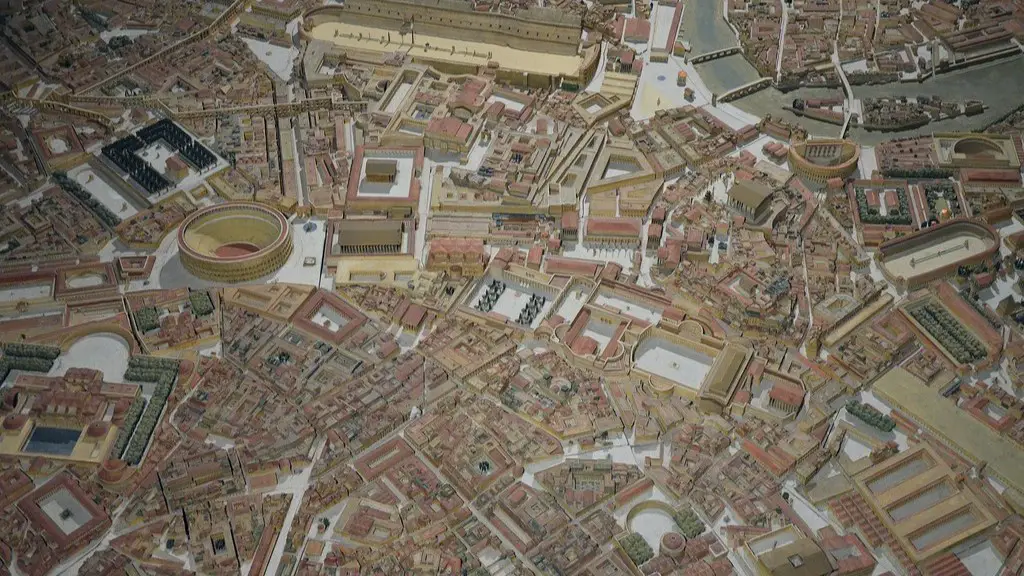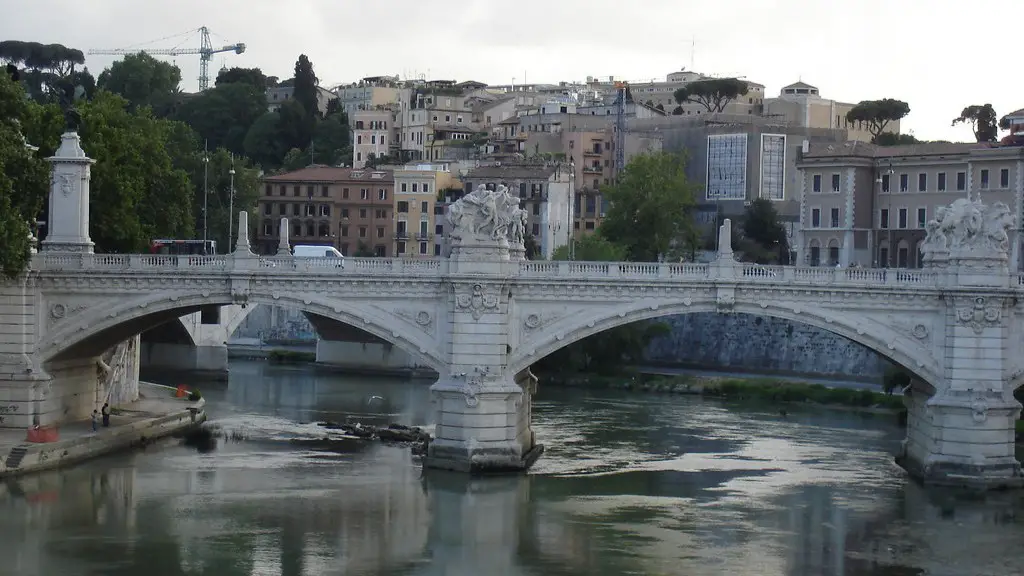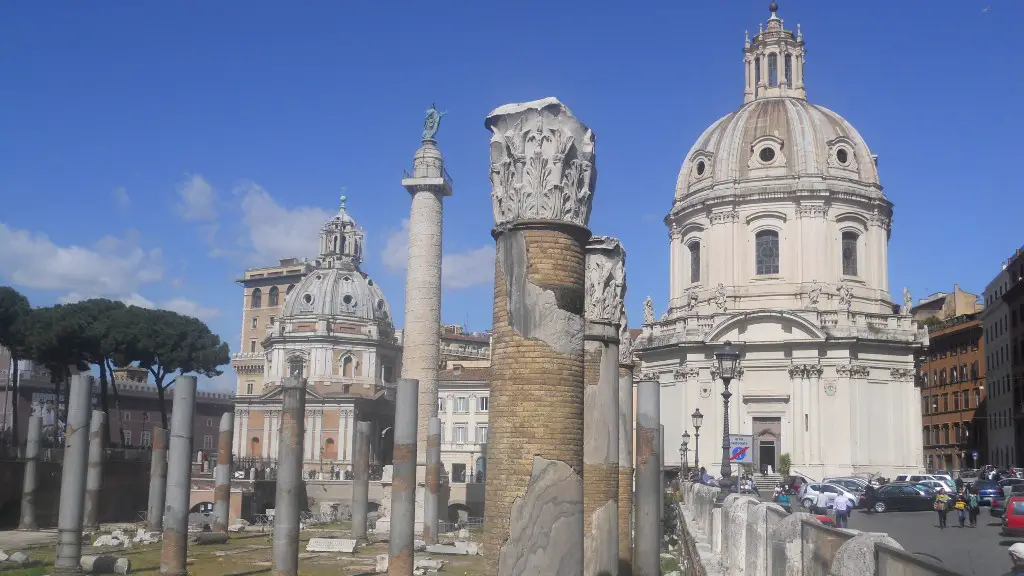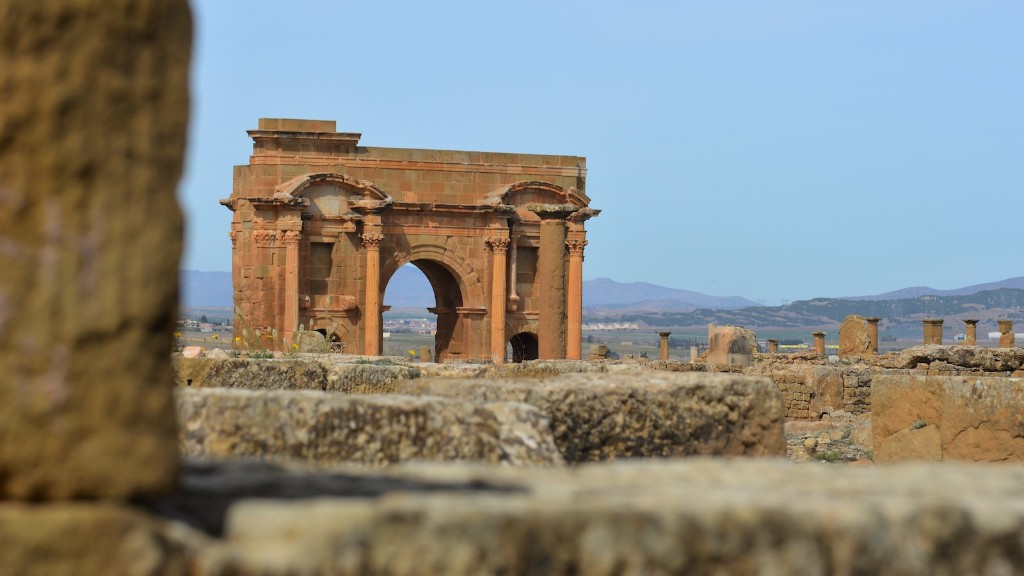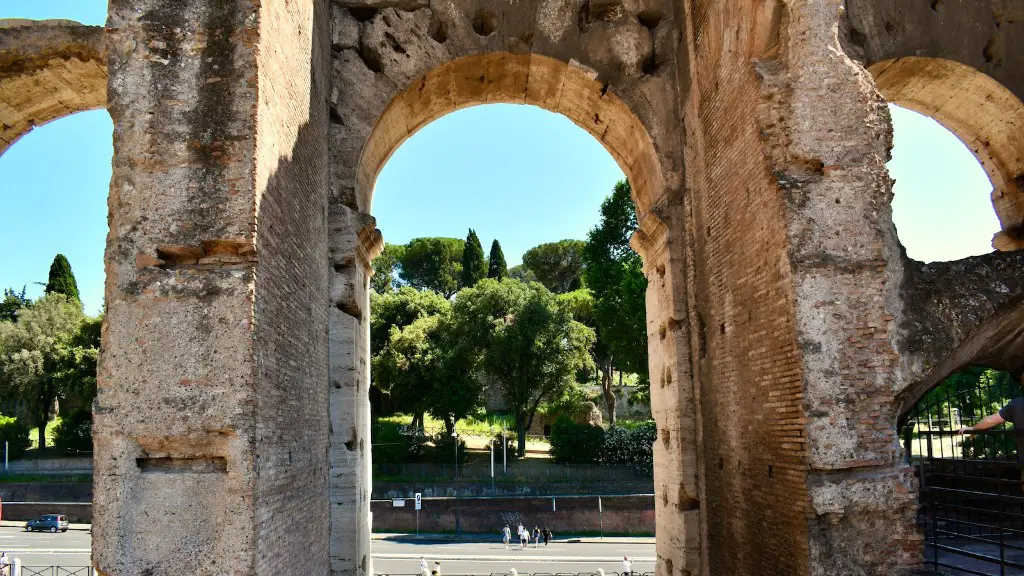Why did Ancient Rome Have a Representative Democracy
The Roman Republic was a representative democracy which flourished in Ancient Rome as a form of constitutional government between the 6th and 3rd centuries BC. This form of government was based on the principles of ‘consultative government’, in which people were able to elect a variety of leaders who could serve as representatives of their views. In essence, the Roman Republic was founded of the idea that the people should have a say in the governance of their state.
The Roman Republic used three distinct types of government: the senate, the consuls, and the assemblies. The senate was the most important institution in ancient Rome and its members included the most influential and wealthiest citizens. The senate had the power to make laws, decide on foreign policy and financial matters, and advise the consuls on the management of state affairs. The consuls were the executive officers of the Roman Republic, with vast authority over both foreign and domestic policy. The assemblies were composed of representatives from the different classes in the Roman Republic, and their role was to serve as representatives to consider proposed laws and pass resolutions.
It was this representative system of government that helped explain the longevity and stability of the Roman Republic. As long as the citizens of the Republic were able to influence how the government operated, they were more likely to support the government and uphold its laws. This system of representation also allowed the people to have their own ideas and opinions on different matters, rather than relying solely on the opinions of the elite. This representation offered a degree of autonomy and protection from arbitrary rule, providing a strong foundation for the longevity of the Republic.
Moreover, it allowed for a more equitable distribution of resources throughout the Republic, as the representatives of different classes were able to speak with one voice and recommend more equitable policies. This served as a check on excessive use of power by the consuls, ensuring that the interests of the people were always taken into account. The ability of the citizens to participate in the decision-making process also gave them a sense of shared responsibility and ownership of the Republic, helping to foster a sense of unity and identity within the Roman people.
Furthermore, some experts have suggested that the Roman Republic had a form of ‘social contract’, in that the citizens were expected to keep the Republic running smoothly in exchange for the protection and influence it provided them. This could be seen as an important factor in the longevity and stability of the Roman Republic, as the citizens were actively invested in its success.
Overall, it is clear that the Roman Republic had a representative democracy which allowed the citizens to have a say in the governance of their state. This system allowed for greater protection from arbitrary rule and enabled a more equitable distribution of resources. It also allowed citizens to participate in decision making and gave them a sense of shared responsibility and ownership of the Republic, helping to foster unity and identity among the citizens. The success of the Roman Republic was due, in part, to its reliance on this structure of representation.
Understanding the Social Contract of the Roman Republic
The idea of a ‘social contract’ in the Roman Republic has been suggested by some experts as an important factor in the success of the ancient Roman government. In essence, the ‘social contract of the Roman Republic’ had citizens agreeing to keep the Republic running smoothly in exchange for protection and influence it provided them. This not only helped foster a sense of unity and loyalty among the citizens, as they felt invested in the success of the state but also meant that citizens had a vested interest in upholding the laws of the Republic.
Moreover, the social contract of the Roman Republic was based on the idea that citizens should be able to exercise some form of control over their government. This was especially important in a time when the consul had virtually unchecked authority over both foreign and domestic policy. The fact that citizens had the power to weigh in on matters of public policy allowed for a more equitable distribution of resources and greater protection from arbitrary rule. The ability of the people to influence the decisions of their representatives also helped to ensure a more inclusive, democratic form of government.
Furthermore, the idea of a social contract in the Roman Republic served to unite the citizens of the state, as they could share a common goal and understanding of the nature of their government. This shared understanding also helped to create a stronger sense of identity and patriotism amongst the citizens as they had a vested interest in the success of their state. This sense of patriotism and loyalty was a major factor in the longevity of the Roman Republic, and is likely one of the main reasons why it was able to remain a powerful state for so long.
Finally, it should be noted that the idea of a social contract in the Roman Republic was by no means perfect. Just like in any system of government, certain citizens may have been left out or had their interests disregarded. Nevertheless, the idea of a social contract had a major role to play in the success of the ancient Roman Republic, and helped to foster a sense of unity and loyalty among the citizens.
Analyzing the Impact of the Roman Republic on Modern Politics
The legacy of the Roman Republic has had a profound influence on modern politics, and many contemporary democracies have adopted aspects of the Roman system of governance. Perhaps the most obvious example is the use of a representative system of democracy, in which the citizens are able to elect representatives who are meant to act in their best interest. This system not only allows citizens to exercise a degree of influence over their government, but also ensures an equitable distribution of resources and greater protection against arbitrary rule.
What’s more, the idea of a social contract in the Roman Republic has had a major influence on how many modern democracies function. This idea has helped to foster a sense of shared responsibility between citizens and their government, as citizens have a vested interest in the success of the government. This idea has also helped to create a stronger sense of patriotism and loyalty, and ensured that citizens have been more likely to uphold the laws and principles of their state.
Finally, the Roman Republic has had an important role to play in the development of the rule of law. This concept, which holds that all citizens should be equally subject to the laws, irrespective of social class or wealth, was an important part of Roman governance and has had a major influence on modern legal systems. In essence, it is this idea that has enabled a fairer and more equitable distribution of justice in contemporary democracies.
Exploring the Role of the Senate and Assemblies in the Roman Republic
The role of the senate and assemblies in the Roman Republic was crucial to its success. The senate was the most powerful institution in the Republic and was composed of the most powerful and influential citizens. As such, they had considerable influence over foreign and domestic policy, and their decisions had a major impact on how the Republic functioned. Meanwhile, the assemblies were made up of representatives from the different classes, who had the power to vote on proposed laws and pass resolutions.
Moreover, it was the combination of the senate and assemblies that allowed the ancient Roman Republic to develop into the successful state that it became. The senate had vast authority over both foreign and domestic policy, meaning that it was able to make decisions based on the needs of the entire state. The assemblies, on the other hand, allowed for the citizens to have some say in the matters of governance, offering them a degree of autonomy and protection from arbitrary rule.
Furthermore, the presence of the assemblies and senate worked together to ensure the enactment of more equitable policies. The assemblies ensured that the proposed laws and resolutions were acceptable to the different classes, while the senate could ensure that any proposed laws were fair and reasonable. This system of representation ensured that power was balanced and that the interests of the people were taken into account.
Overall, it is clear that the senate and assemblies played a critical role in the success of the Roman Republic. Their combined presence allowed for a degree of autonomy, protection from arbitrary rule, and more equitable policies. The ability of the citizens to participate in the decision-making process gave them a sense of shared responsibility and ownership of the Republic, helping to foster a sense of unity and identity within the Roman people.
The Legacy of the Roman Republic
The Roman Republic was a major success and had an enduring legacy which has impacted the development of modern democracy. The use of a representative system of government, the idea of a ‘social contract’, and the influence of the senate and assemblies helped to ensure a more equitable distribution of resources, greater autonomy, and protection from arbitrary rule. The ability of the citizens to participate in their government’s decision-making process was also a major factor in the success of the Roman Republic, as it enabled the citizens to have a sense of shared responsibility and ownership of their state.
The legacy of the Roman Republic can still be seen today in many democracies around the world. The use of a representative system of government, the concept of a social contract, and the idea of the rule of law have all been derived from the Roman system of governance. It is this legacy that has helped to make modern democracies more equitable and just, ensuring that the citizens of these states can enjoy greater protection and autonomy.
Conclusion
Overall, the success of the Roman Republic was due in part to its reliance on a representative democracy. This system allowed the citizens to exercise some influence over the government, ensured an equitable distribution of resources, and gave citizens a sense of shared responsibility and ownership of their state. The lasting legacy of the Roman Republic can still be seen in many modern democracies around the world, and it is likely that this representative system of government will continue to serve as an inspiration in the years to come.
